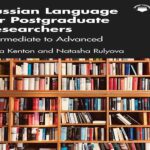- عنوان کتاب: Intensive Care Fundamentals / Practically Oriented Essential Knowledge for Newcomers to ICUs
- نویسنده: František Duška
- حوزه: ICU
- سال انتشار: 2023
- تعداد صفحه: 278
- زبان اصلی: انگلیسی
- نوع فایل: pdf
- حجم فایل: 10.4 مگابایت
از زمان طلوع آن در بیمارستان Blegdams در کپنهاگ در طول همهگیری فلج اطفال در سال 1952، متخصصان ICM به افراد کمک میکنند تا از بیماریهای وخیم جان سالم به در ببرند. امروزه، توسعه بسیاری از حوزههای مراقبتهای بهداشتی به خدمات مراقبتهای ویژه وابسته است و همهگیری اخیر باعث پیشرفتهای بیشتر در این زمینه شده است. ICM یک شاخه چند رشته ای از پزشکی است. مسیرهای آموزشی مختلفی برای تبدیل شدن به یک متخصص فشرده وجود دارد: در برخی کشورها (اسپانیا، سوئیس، انگلستان)، ICM یک تخصص اولیه است، در حالی که در بسیاری دیگر، ICM یک تخصص فوق تخصصی به تخصص های پایه مختلف (بیهوشی، داخلی، پزشکی تنفسی) است. ، قلب و عروق ، نورولوژی ، نفرولوژی ، جراحی و غیره). همواره، این تخصص ها شامل درجه ای از قرار گرفتن در معرض مراقبت های ویژه از طریق مسیرهای آموزشی تخصصی است. به نوبه خود، تعداد فزاینده ای از کارآموزانی که هر ساله در ICU آموزش می بینند و کار می کنند، یا در ابتدای مسیر برای تبدیل شدن به یک متخصص فشرده یا به عنوان بخشی از آموزش در تخصص های مختلف وجود داشته است. نیازهای آموزشی این پزشکان در حال آموزش در سراسر اروپا مشابه است، اما آموزش آنها متفاوت است. تنها تعداد کمی از بیمارستانها از دورههای القایی استاندارد متناسب با نیازهای آموزشی پزشکان در اولین استقرار در ICU استفاده میکنند.
انجمن اروپایی مراقبت های ویژه پزشکی (ESICM) در همکاری نزدیک با جوامع ملی ICM کمک قابل توجهی به پیشرفت دانش در ICM می کند. این امر با ارتقای بالاترین استانداردهای مراقبت چند رشته ای از بیماران بدحال و خانواده های آنها از طریق آموزش، تحقیق و توسعه حرفه ای به دست آمد. آکادمی ESICM و کلاس های کارشناسی ارشد بالاترین استاندارد آموزشی را در ICM ارائه می دهند. این انجمن همچنین بر ارزیابی خلاصه صلاحیت های ICM در آزمون دیپلم اروپایی در مراقبت های ویژه (EDIC) نظارت می کند. با این حال، یک دوره مقدماتی استاندارد در این چشم انداز آموزشی غنی وجود نداشت و ICF ابتکاری با هدف پر کردن این شکاف است.
ICF یک دوره استاندارد حضوری است که شامل سناریوهای مبتنی بر مورد، کارگاههای تعاملی و شبیهسازیهایی است که به دقت توسط متخصص ESICM تهیه و استاندارد شده است تا به صورت محلی به زبانهای محلی توسط اعضای هیئت علمی آموزش دیده و دارای گواهینامه ESICM ارائه شود. . این قالب به گونه ای انتخاب شد که انعطاف کافی برای تنظیم آموزش بر اساس شیوه های محلی، SOP ها و آداب و رسوم را فراهم کند، در حالی که از سوی دیگر اصول شیوه های مبتنی بر شواهد فعلی را در محتوای استاندارد تعبیه کرد. قبل از ورود به دوره حضوری، کارآموزان موظفند دانش اولیه خود را که در این کتاب به آن پرداخته شده است، تجدید کنند.
Since its dawn in Blegdams Hospital in Copenhagen during the polio pandemic in 1952, ICM specialists have been helping individuals to survive critical illness. Nowadays, the development of many areas of healthcare is reliant on intensive care services, and the recent pandemic fostered further developments in this field. ICM is a multidisciplinary branch of medicine. There are different educational pathways to become an intensivist: in some countries (Spain, Switzerland, the UK), ICM is a primary specialty, whilst in most others ICM is a supra-specialty to different base specialties (anaesthesia, internal medicine, respiratory medicine, cardiology, neurology, nephrology, surgery, etc.). Invariably, these specialties include a degree of exposure to intensive care through specialised training pathways. In turn, there has been an increasing number of trainees who train and work in ICUs every year either at the start of the pathway to become an intensivist or as part of training in different specialties. The educational needs of these doctors-in-training are similar across Europe, but their training is different. Only a minority of hospitals use standardised induction courses tailored to the educational needs of doctors on their first placement in ICU.
The European Society of Intensive Care Medicine (ESICM) in close collaboration with national ICM societies contributes significantly to the advancement of knowledge in ICM. This was achieved by the promotion of the highest standards of multidisciplinary care of critically ill patients and their families through education, research, and professional development. The ESICM Academy and Master Classes offer the highest standard of education in ICM. The society also supervises summative assessment of ICM competences in the European Diploma in Intensive Care (EDIC) examination. Yet, a standardised induction course was missing in this rich educational landscape and ICF is an initiative aiming to fill this gap.
ICF is a standardised face-to-face course, which includes case-based scenarios, interactive workshops, and simulations that have been carefully prepared and standardised by ESICM expert to be delivered locally in local languages by ESICM-trained and certified faculty members. The format was chosen to allow enough flexibility to tailor the training according to local practices, SOPs, and customs, whilst on the other hand embedding the principles of current evidence-based practices in the standardised content. Before coming to the face-to-face course, trainees are required to refresh their basic knowledge, which is covered in this book.
این کتاب را میتوانید بصورت رایگان از لینک زیر دانلود نمایید.
Download: Intensive Care Fundamentals



































نظرات کاربران